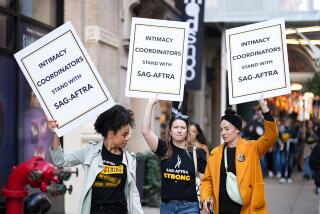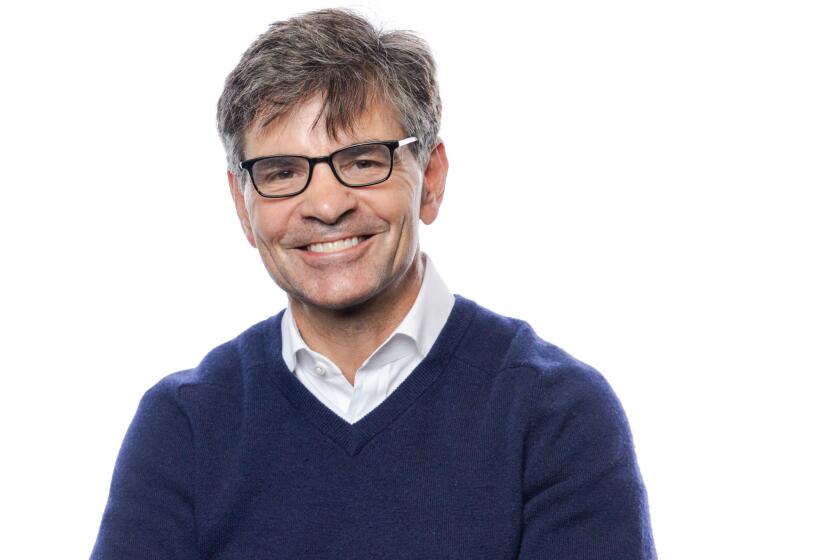SAG-AFTRA sets rules for use of ‘intimacy coordinators’ on sets

SAG-AFTRA, Hollywood’s biggest union, released a four-page guide on the use of intimacy coordinators on film sets to help protect actors from abuse in the wake of the #MeToo movement.
The union, which represents 160,000 actors and other performers, on Wednesday issued a list of standards and protocols for the use of professional intimacy coordinators to help casts safely navigate nude or simulated-sex scenes.
Over the last two years, SAG-AFTRA has been trying to create frameworks to help eliminate sexual harassment in the entertainment industry, including establishing a seven-page code of conduct and so-called Guideline No.1, which barred the use of hotel rooms or residences for auditions.
“This helps protect our members,” SAG-AFTRA National Executive Director David White said in an interview. “We wanted to keep it simple and keep it easy for the industry to embrace.”
White said the union developed the guidelines after consulting about 45 intimacy coordinators and producers interested in bringing these professionals onto their sets.
In 2018, HBO became one of the first major networks to say it would hire intimacy coordinators to monitor sexually intimate scenes filmed on the sets of its programs.
The new union rules outline training standards for intimacy coordinators and their role before, during and after production. Among other requirements, coordinators must review all nudity riders, content and modesty garments with performers, directors and assistant directors.
SAG-AFTRA said the guidelines will allow productions to run more efficiently and provide a safety net for performers.
The new standards follow complaints about inappropriate handling of explicit scenes in productions.
When actress Sarah Scott was shooting an intimate scene for a television pilot, her costar Kip Pardue placed her hand on his groin, she said, and later called her into his dressing room and masturbated in front of her. She made a complaint via SAG-AFTRA. Pardue apologized for his handling of the sex scene but denied Scott’s other accusations. The guild declined to comment on Scott’s case.
Samara Weaving reportedly left Showtime’s “SMILF” in part because of concerns about how the showrunner handled a closed-set request during the filming of a sexual interlude. Both the co-star and the showrunner have denied these allegations.
“It is our hope that this process can be widely adopted for an effective and reasonable path for productions to work with a trained intimacy coordinator,” Alicia Rodis, associate director and co-founder of Intimacy Directors International, a nonprofit group that certifies industry professionals, said in a statement. “With these protocols already field-tested by an ever-growing number of productions and studios, we believe we can make important and welcome industry changes.”










